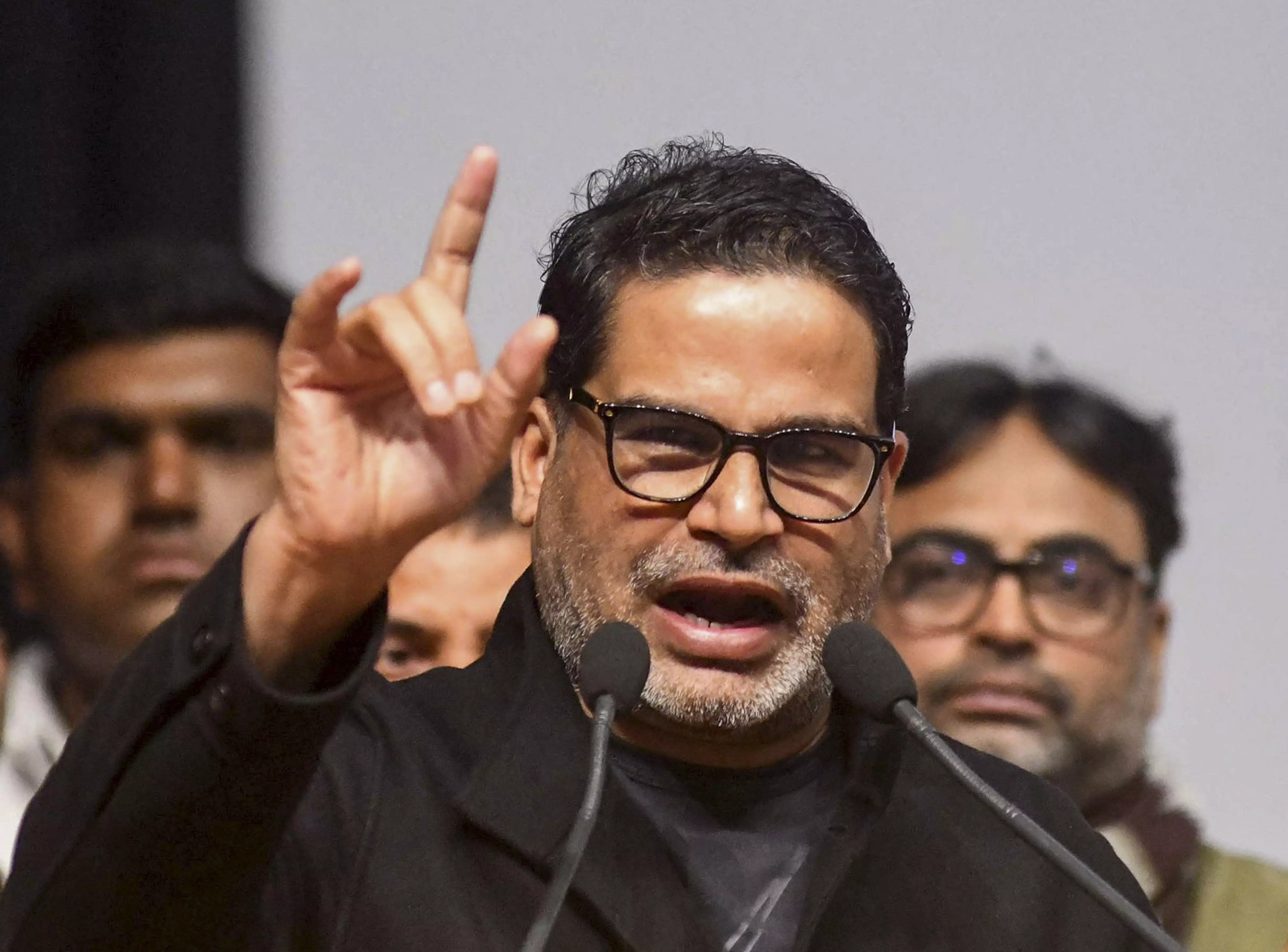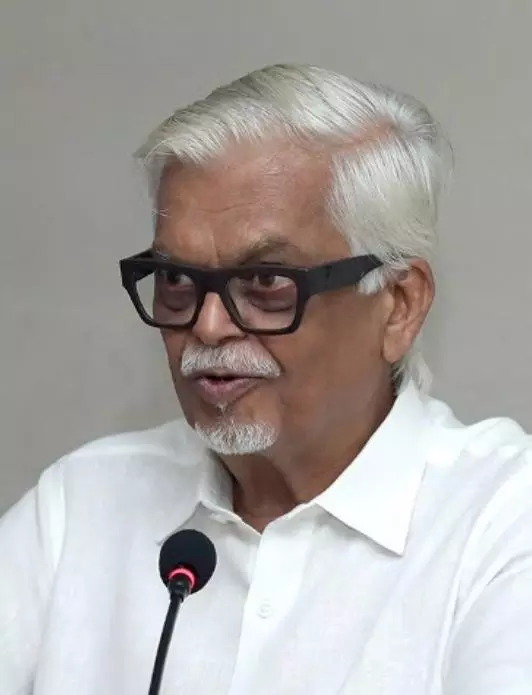Sanjaya Baru | Why poll forecasts risky amid the election circus

The political campaign backroom boy turned politician turned wannabe psephologist Prashant Kishor finally had his comeuppance in Karan Thapar’s studio last week.
Kishor should have known that Thapar is thorough with his homework. When asked why his prediction that the Bharatiya Janata Party would secure over 300 seats in the Lok Sabha should be believed when a couple of his earlier such predictions proved to be wrong, Kishor denied any such wrong prediction on his part. He then demanded that Thapar show a video clip to prove his charge. Thapar had newspaper clips and social media posts at hand. Kishor’s demand fell flat and exposed the biased and partisan nature of his prediction of a BJP victory.
Kishor should have learnt a lesson from economist-turned-psephologist Surjit Bhalla. Bhalla has been in this business for over three decades. He has made any number of predictions on election outcomes. He was right on some and wrong on others. So, Bhalla has a simple line of defence. He quotes the famous British psephologist David Butler, a guru to many Indian psephologists including Prannoy Roy, who apparently held the view that psephologists should always forecast because sometimes they get it right and sometimes they don’t.
Given the nature of the playfield, especially in a parliamentary system where converting vote percentages into number of seats is always fraught, and the element of uncertainty in an electorate as diverse as India’s, electoral outcome forecasting is a risky business. The track record of even the best psephologists are full of hits and misses. What keeps them in business is that someone or the other is happy with the forecast. Rather than confess that he got it wrong on a couple of occasions, Kishor insisted he had never got it wrong. He may have felt compelled to make the claim to remain in business. Thapar had him for breakfast.
Election forecasting has been around for a long time. In India, it took off with the spread of television. Prannoy Roy was the first to make a business out of it. His original team consisted of economists and statisticians who were good at conducting sample surveys, number-crunching, constructing econometric models and making forecasts. Roy is himself an economist and his original team included Bhalla and Ashok Lahiri. The TV election forecasts brought into prominence several individuals who went on to have their own political careers, like G.V.L. Narasimha Rao and Yogendra Yadav.
Given the public interest, nay curiosity, and the general human nature to want to know the future, election forecasts attract a big audience and for the media they have become money spinners. Everyone and his auntie has got into the game. One can pick and choose one’s favourite forecast and go to sleep.
Big money has changed the way the media, print and electronic, report not just cricket and crime but also the Union Budget and elections. It’s all about eyeballs and TRPs and keeping the viewer from flipping TV channels. Live coverage of the Union Budget also began around the same time that televised election forecasting began, in the 1980s. With the urban middle class and upper-class audiences glued to the TV on Budget day to figure out the impact of taxes and policies on households and firms, TV coverage began attracting advertising revenues. Television coverage of the Union Budget has been continued even after the time of Budget presentation was changed from evening to morning, with entertaining discussions around the Budget televised in the evening. Advertising drives everything in the media.
Not surprisingly, therefore, election coverage is increasingly less about serious issues and more about entertainment. Discussions have to become arguments. All sides have to shout at each other and if the shouting becomes too much, humour is inserted as a filler. Elections as entertainment have taken political journalists into different directions, from mixing politics with cuisine and restaurant hopping to mixing politics with cinema and song. Into this milieu and melange enter the pollsters and psephologists. They too must entertain to remain in business. In this year’s campaigning the trivialisation of politics has been taken to the extreme levels. Electoral forecasting has also become intertwined with politics with many analysts and journalists becoming overtly partisan. The manifest partisanship of some pollsters and psephologists has rendered most opinion and exit polls meaningless.
Yet, the show goes on. As long as the audience is there, there’s money to be made.
Most view these polls much like they view the predictions of an astrologer. Who knows he may be right, he may be wrong, but let’s find out. Que sera, sera, whatever will be, will be. The future’s not ours to see. But why not check it out?
Some intelligent television anchors, once bitten twice shy, protect their reputation with the caveat that there is always a margin of error in all polls and this is only a survey. Voters in India are secretive. They say one thing, and do another. So on and so forth. A dozen different caveats have been invented to explain away an error of judgment in converting survey percentages into a tally of seats.
For the first time this year, we see election forecasts and opinion polls being used as an instrument of the electoral campaign and propaganda. Numbers are being put out to convince voters that one side or the other is sure to win. This is being done with two different purposes in mind. One, to deflate the enthusiasm of the supporters of one’s opponent so as to discourage them from going out to vote; or, two, to enthuse the supporters of one’s own to get them to go out and vote. Lower turnouts in the first two phases have made all sides use manufactured forecasts to influence voter behaviour.
Kishor entered this field pretending to be a commentator while in fact trying to be a player. He assumed he could respond to Thapar’s straight bat knocks with spin and googly. If he had shouted down his interlocutor on any other channel he may have got away with it, given that so few journalists are used to asking follow-up questions and countering statements with facts. Karan Thapar is not one to be cowed down. He is always armed with facts. Kishor got caught out.

